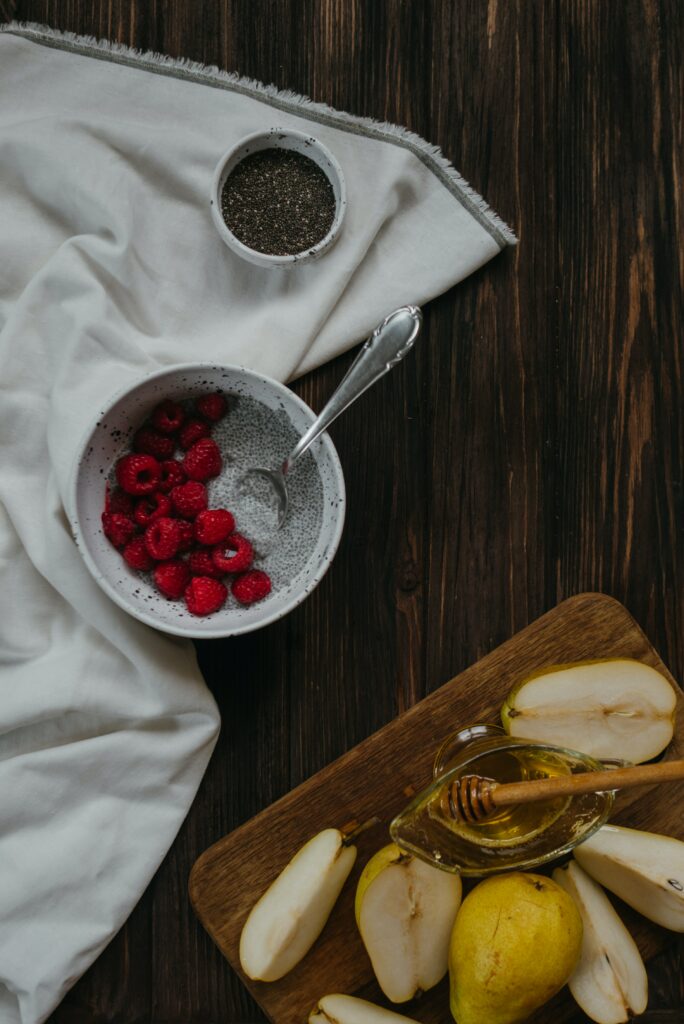The benefits of following a gluten-free breakfast in the morning include better digestion as well as increased energy levels. The most important benefit of eating breakfast on a gluten-free diet is that you are not making your stomach feel gross throughout the day. Diets with gluten-free diets breakfasts allow people to stay healthy and reduce their chances of getting diseases like cancer, diabetes, heart disease, and autoimmune disorders.
For a long time breakfast is held a lofty title as the so-called most important meal of the day and it makes some sense. Breakfast is the first part of the day in which we nourish ourselves and load up on calories for the day ahead. But is breakfast as important as it claims to be?
After all, it seems as though an increasing number of people seem to skip this meal altogether. So just how important is breakfast? Well, the short answer is: very, but maybe not for the most obvious reasons. So, if you’re the kind of person who usually skips out on the morning meal, what can we say that might make you reconsider? Well, for starters studies have seemed to indicate that eating breakfast can potentially lower your risk of heart disease.
Table of Contents
Some serious research
According to a study from the University of Iowa, published in the Journal of American College of Cardiology, missing out on breakfast can potentially have a negative effect when it comes to cardiovascular health. Based on the findings of the study people who opted out of starting their day with a meal could be as much as 87% more likely to suffer from heart disease-related death compared to people who ate breakfast. That’s a high number!
However, previous studies mainly focused on the content of what people eat. Not much is known about how people organize their meals. This is the first study to link skipping breakfast to cardiovascular death. The American Heart Association also attests that people who skip breakfast in the morning appear to have an increased risk of heart disease as well as diabetes and high cholesterol.
In other words, if you tend to skip breakfast often, chances are you may be prone to other unhealthy behaviours which can affect your heart as well. In other cases, part of the problem can also stem from the fact that not everyone knows what a healthy breakfast consists of. In other words, if your typical breakfast consists of a bowl of sugary cereal or pancakes drenched in syrup, that’s probably going to have a negative impact just as much as not having breakfast at all.
Better options to start your day include more well-rounded healthy foods such as whole grains milk and fruit. Despite the apparent health benefits that come from eating breakfast every morning, the number of people who start their day with a meal might be lower than you would expect.
Unhealthy habits
The reasons why anyone skips breakfast can vary from person to person. Some people simply don’t feel all that hungry first thing in the morning, while others feel as though they’re too busy at the start of their day or otherwise, don’t have time to prepare a nutritious breakfast.
While many people might try to supplement a poor breakfast by grabbing a bite on the way to work, this can lead to more unhealthy food choices that will negatively impact your health in the long run. Things like doughnuts, pastries, pancakes and sweetened cereals are full of saturated fat, contain little protein or fibre. These aren’t the foods that you want to be eating in the morning.
So based on this body of evidence and can we still claim that breakfast is indeed the most important meal of the day? Well, yeah, but on one condition, that you make healthy choices when deciding what your breakfast will be consisting of. By choosing healthy foods and starting your day off right, you can help prevent the risk of heart disease and diabetes, as well as fuel up for the day with enough energy to jump. Start your body’s engine and hit the ground running.
So the next time you wake up and get ready for work in the morning, why not crack open a couple of eggs as part of your morning routine? Your heart will thank you for it!

What is gluten?
Gluten is a protein naturally made by wheat, barley and rye. Remember, food has three types of building blocks: fat, protein and carbohydrates. While we tend to think of protein as meat, plants make a lot of it too and different plants make different kinds.
The gluten protein is unique because its two parts, gliadins and glutenins, trap water and get sticky when they’re wet (like glue). This is why wheat, barley and rye flowers are great for making doughs and mixes. During baking their stickiness also helps trap rising air bubbles, so that bread and cakes become fluffy.
Gluten-related diseases
Wheat allergy
Wheat allergy is a strong allergic reaction to wheat proteins that causes some people to suddenly have severe difficulty breathing. You may know people who have had similar reactions to peanuts or bee stings wheat allergies are dangerous but very rare.
Celiac disease
Celiac disease on the other hand is an autoimmune disease. When people with this disease eat gluten the immune system flares up and damages the intestines. Inflammation makes it hard for them to absorb.
Non-celiac gluten sensitivity
The third disease is non-celiac gluten sensitivity. This one is lost while defined. The symptoms are similar to celiac disease but are caused by a different set of triggers. Some researchers prefer to call it non-celiac wheat intolerance in particular.
A gluten-free diet primarily leaves out food made from flour, but the tricky part is finding places where gluten tends to hide. The complete list of products that have gluten can feel long and somewhat random when you’re first starting a gluten-free diet.
This is why professionals trained in nutrition are available to help. Remember, for the most part, wheat, barley and rye are the only natural sources of gluten. This makes other food groups automatically gluten-free. The other grains are typically safe too. Corn, rice and nutrient-packed quinoa, for example, don’t make gluten on their own.
For people who want to bake there are even gluten-free flowers. These are either made from plants that naturally don’t make gluten or they are made from wheat and have had the gluten removed and replaced.
How a gluten-free breakfast might help
Benefits of gluten-free breakfast:
- Weight loss – people who follow a gluten-free diet tend to consume fewer calories than those who don’t
- Improved digestion and nutrient absorption – your digestive system needs to work harder as your body struggles to break down the protein in grains
- Healthy skin, hair & nails – you may find that you have smoother skin and shinier locks or your hair will be stronger and look shiny
- More energy – some people find that after cutting out gluten from their diets they have more energy to focus on other tasks that they
Feel free to explore what could be great recipes and food options to count on all the advantages of a gluten-free breakfast. Also, take into account that this type of diet is convenient in some special cases. If you want to gain weight or muscle mass, this one is not the right choice. We recommend not to follow trendy diets, but to listen to your body and its needs. Nutritionists can help you make the right adjustments and customize a diet that suits you well.
Are you already someone who never skips a healthy breakfast and if so, what’s your go-to meal to start the day?





